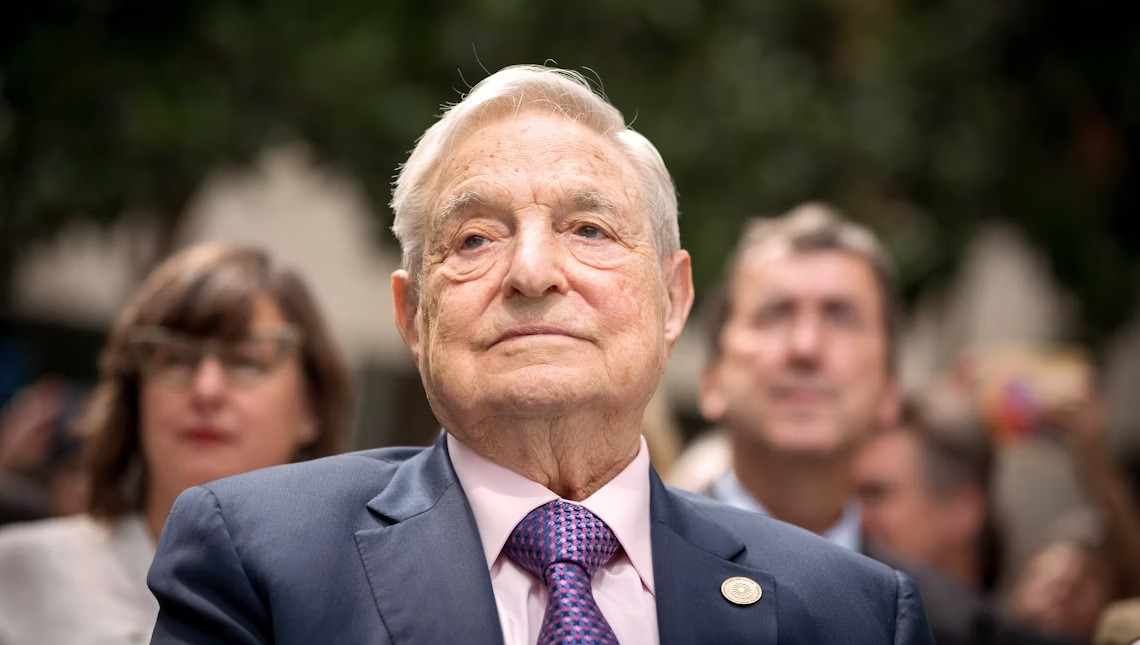George Soros is among the most successful investors in the world, popularly known as the man who broke the Bank of England. In 1992, he made a single-day profit of $1 billion from short-selling the British Pound.
His philanthropic efforts saw him donate over $32 billion to charitable causes via the Open Society Foundations. Soros founded his hedge fund, Double Eagle, in 1969, which generated average annual returns of 30% until 2000. The fund’s name has changed several times over the decades, from Quantum Group of Funds to finally Soros Fund Management (SFM).
In 2011, the Soros Fund Management converted into a family office and returned all outside money to investors to oversee and advise on funds on behalf of the Soros family.
Soros, 93, has a wealth of $6.7 billion and remains the chair of SFM.
According to the latest 13F-HR filing, SFM made several changes to its $6.01 billion portfolio across 193 securities in the March-ended quarter.
SFM slashed its stake in Uber in Q1 by 12.43% to own 606,359 shares worth $48.68 million. Uber’s stock price has declined nearly 10% in the last 30 days. It posted a loss of $0.32 per share on sales of $10.13 billion for the quarter ended March 31, falling short of analyst earnings estimates of $0.22 per share.
The company also posted a year-over-year (YoY) increase in net loss for Q1 to $654 million due to investment markdowns. Uber’s quarterly bookings of $37.7 billion also trailed market expectations of $37.9 billion. Despite total costs and expenses in the quarter rising to $9.95 billion, the firm generated an income of $172 million from operations.
Meanwhile, SFM also lowered its exposure to Novo Nordisk, a drugs discovery and development firm in Denmark that targets obesity and chronic conditions like diabetes. The fund trimmed its position by 48.7% in the healthcare firm in Q1 to own 797,616 shares worth $102.41 million.
Novo Nordisk has had tremendous success with its weight-loss drug, Wegovy, which was approved in the US last quarter for lowering cardiovascular risks in people who are overweight and have established cardiovascular diseases. Furthermore, the firm’s insulin icodec, Awiqli, was also recommended for EU approval.
However, the high demand for Wegovy outstripped supply, which impacted the availability of their medicines in the US last year. The firm is already working to increase supply capacity and expects to match demand levels gradually.
Despite posting an impressive jump in overall sales and net profits alongside a 34% increase in North American sales last quarter, bouts of supply bottlenecks and subsequent drug shortages have troubled the firm.
Coming to tech stocks focusing on AI, SFM raised its Alphabet holdings in Q1 by 22.27% to own 1.49 million shares of Google’s parent company, worth $224.97 million. The fund buying Alphabet shares during the quarter coincided with the tech giant’s stock prices dropping in March on controversies around its AI image-generation tool Gemini, which triggered a social media storm.
According to billionaire investor Daniel Loeb’s hedge fund, Third Point, Alphabet is well-positioned to utilise its AI capabilities to “unify, enhance and better monetise the entire suite of products” as it considers the “moment when Gemini takes a seat at the economic table is approaching.” Third Point also scooped up millions of Alphabet shares last quarter.
For the quarter ended March 31, Alphabet’s overall revenue increased 15% YoY to $80.53 billion, while net income also increased YoY to $23.66 billion. It is also consolidating teams that build AI models across Google Research and Google DeepMind to speed up progress in its AI R&D.
Meanwhile, Soros’ fund remained bullish on the real estate construction company D.R. Horton, hiking its stake by 156.61% in Q1 to own 178,600 shares worth $29.38 million. The construction firm’s homebuilding revenues increased 13% YoY in the March-ended quarter to $8.5 billion, while the number of homes closed increased 15% to 22,548 homes.
D.R. Horton’s net sales orders also increased 14% to 26,456 homes. Simultaneously, the sales order backlog fell 7% to 17,873 homes. Despite high inflation and mortgage rates, the company highlighted solid demand for new homes, stating that the “disruptions in the supply chain for certain building materials and tightness in the labour market we experienced in recent years have largely subsided, and our average construction cycle time has returned to historical norms.”
SFM has also been eyeing discretionary consumer stocks in recent quarters. The fund has continued to pile money into Nike for consecutive quarters, increasing its holdings in the footwear company by 31.26% in Q1 to own 310,720 shares worth $29.2 million.
This trade coincides with Nike’s comeback roadmap to rebuild a robust pipeline of innovative products after the stock price dropped 30% in the last three years. For the quarter ended February 29, the company posted a slight increase in overall revenue to $12.4 billion, stunted by an almost 20% drop in revenues for Converse.
Nike CEO John Donahoe believes that the years-long remote work policy during the pandemic created hurdles to innovation in the company, impacting overall demand.
“Employees worked from home for two and a half years…And in hindsight, it turns out, it’s hard to do bold, disruptive innovation, to develop a boldly disruptive shoe, on Zoom,” he had said. “Innovation has always marked Nike in the running, as in other categories, so we’re not just going to copy what other people do.”
While Nike has faced difficulty reviving brand enthusiasm in recent years, it has embarked on a bold mission to regain its footing with a disruptive plan involving drastic cost-cutting measures like trimming 2% of its global workforce.
Disclaimer: Our digital media content is for informational purposes only and not investment advice. Please conduct your own analysis or seek professional advice before investing. Remember, investments are subject to market risks and past performance doesn’t indicate future returns.






